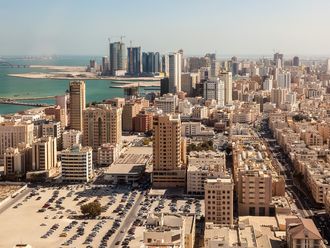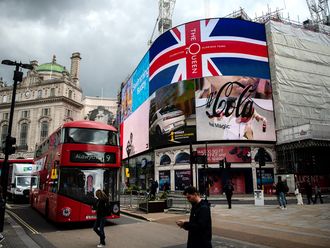Manama: Bahrain's interior ministry has distanced itself from the attacks on protestors perpetrated by some of its servicemen, saying that they broke its rules and regulations.
"The ministry has watched the video showing policemen attacking a number of citizens," Tariq Al Hassan, the ministry spokesman, said. "The Legal Affairs Department has launched an investigation and taken legal procedures against some ministry personnel suspected to be involved in the case," he said.
The investigators now want to listen to witnesses and to the attack victims and have them medically checked as part of the legal procedures for the case file, Al Hassan said.
"Such practices against people are not tolerated and do not represent the ministry's approach or the ethics of its personnel. What happened was illegal and against our regulations," he said. "The ministry remains committed to the respect of the law and human rights values and violators have to assume the responsibility and consequence of their behavior," he said.
Bahrain has witnessed a resurgence of street clashes between protestors and anti-riot police that coincided with visits by Alistair Burt, the British Minister for Middle East and North Africa, Michael Posner, the US Assistant Secretary of State for the Bureau of Democracy, Human Rights and Labour, and a delegation from the Geneva-based UN High Commissioner for Human Rights following the publication of a searing report by an international fact-finding team.
The Bahrain Independent Commission of Inquiry, setup by King Hamad Bin Eisa Al Khalifa on June 29 to look into the incidents that hit Bahrain in February and March and their consequences, made a long list of recommendations in its report released on November 23 following four months of investigation.
Cherif Bassiouni, the commission chairman who worked on similar investigations in Former Yugoslavia (1993), Afghanistan (2004-2006) and Libya (2011), told Gulf News that the Bahrain assignment had been the hardest.
King Hamad accepted the report and told the government to implement the recommendations with assistance from international expertise.
He set up a 19-member National Commission to oversee the implementation as advised by the BICI report.
The interior ministry, criticised in the report for the use of excessive force, said that a code of conduct would be developed for the police and that it recruited security experts to help police protect rights and freedoms while enforcing order.
John Timoney, chief of the Miami Police for seven years, and John Yates, a former Metropolitan Police Assistant Commissioner, were tasked with overhauling the police force to ensure its procedures meet international human rights standards.












